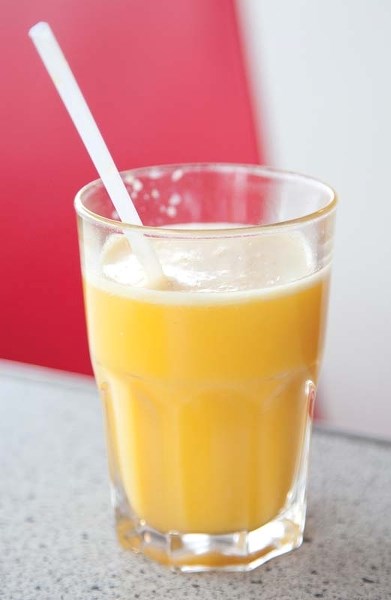After an indulgent holiday season of too much alcohol, sweets, carbs and meat, many seek out different techniques to purge their insides and detoxify their bodies of Christmas vice.
One type of cleanse in particular has recently been making headlines and the trend will likely continue into 2014. That cleanse is juicing.
Fruit and vegetable juicing has been around for decades. Juice cleanses – which can last from days to weeks – is based on the premise that people limit their dietary intake to strictly unpasteurized fruit and vegetable juices and water.
Over the last several months, juicing has gone from diet fad to extreme long-term juice fasting, a potential trigger for eating disorders. The phenomenon has become known as “juicerexia” and its diet devotees “juicerexics.”
For many, juicing is an alternate way of adding nutrients to their diet. Health professionals have raised concerns over the extremity of juicing, when a three-day cleanse turns into months of straight juice consumption.
“If (a person) has any signs or symptoms of an eating disorder and they try and lose weight with juicing, it can trigger the eating disorder,” said Claire Izcovich, a registered dietitian with the St. Albert & Sturgeon Primary Care Network.
She explained there is no scientific evidence to support that juice cleanses and certain fad diets help the body detoxify.
“Our bodies are made with different pathways to detoxify – our liver, our kidneys, our bowels, our sweat,” she said. “There is no evidence that those types of diets will help you clean yourself.”
Cleanses such as juicing may help people shed pounds at first, noted Izcovich, but the weight is water weight, a direct result of consuming less calories. A typical juice cleanse may range from 1,000 to 1,200 calories per day, while average caloric intake as estimated by Health Canada is between 2,500 and 3,000 for adult men and women.
“The problem is that as soon as you start eating again, you will gain back all that weight,” added Izcovich.
Another cause for concern when restricting yourself to a strict juice-only diet is missing out on nutrients from other food groups as well as ones contained in fruits and vegetables in their natural states such as fibre.
She explained juicing may also have negative health consequences for people who have diabetes or who are predisposed to the disease.
“Consuming large amounts of sugar at once with no barrier at all, which is what happens with juice, your blood sugars will spike and drop more than they should.”
Izcovich advised that instead of embarking on a full-on cleanse in the new year, start by moderating liquid calories from alcohol, pop and juice. Controlling portion sizes during holiday meals is also important.
“The most important thing is eat less processed food and increase whole foods such as whole grains, fruits and vegetables,” she added.




